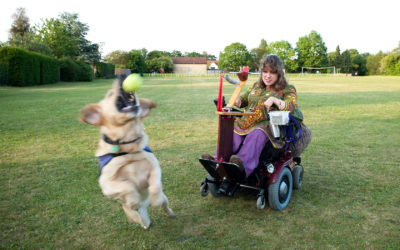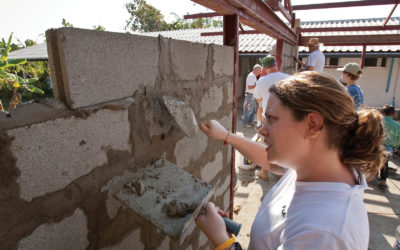Gary Huang spoke to Rotary magazine about the impact of Rotary’s Global Grants in helping to rebuild Nepal after it was struck by a 7.8 magnitude earthquake in 2015.
What is your assessment of the role and impact played by Rotary clubs following the earthquake in Nepal?
Soon after the earthquakes struck, Rotary clubs in the United States, Malaysia, Singapore, India, Bangladesh and others co-ordinated their support for immediate needs such as dry foods, tents, blankets, first aid kits and safe drinking water.
We joined with other international agencies in providing immediate relief to survivors through our partnership with ShelterBox and mobilised our expertise to support long-term recovery and rebuilding efforts throughout the country.
Global Grants were used for a variety of projects; how is the Nepalese earthquake an example of the impact which Global Grants can have?
The devastating earthquakes caused large-scale damage, many injuries and loss of life. In one small village, Khokana, about nine kilometres from the capital city Kathmandu, 550 homes were completely destroyed out of 900 households in the village.
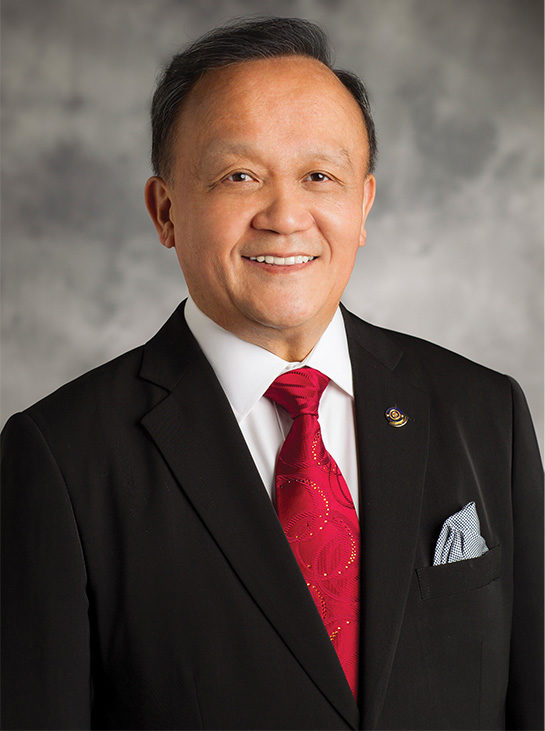

Gary Huang, Chairman of The Rotary Foundation.
Rotary members conceived a number of Global Grants which have had a notable impact, from community economic development, to water repair projects, to providing education to vulnerable children.
Here, I’d like to highlight two of these grants, proposed by the Rotary Clubs of Patan (Nepal) and Mississauga-Meadowvale (Canada), for community economic development and repairing water systems.
First, one Global Grant aimed to strengthen the well-established Khokana Women Awareness Society (KWAS), and equip about 150 women who have been affected by the 2015 earthquakes with income-generating skills close to their homes.
As a result of this grant, KWAS will be able to maintain and expand its community outreach in the areas of maternal and reproductive health, and child-care.
They will also empower 150 women to become self-reliant by contributing to family income, rebuilding the community and overcoming the disaster. The indirect benefit from the extra income will be to lessen the risk of children dropping out of school to support household and income-generating activities.
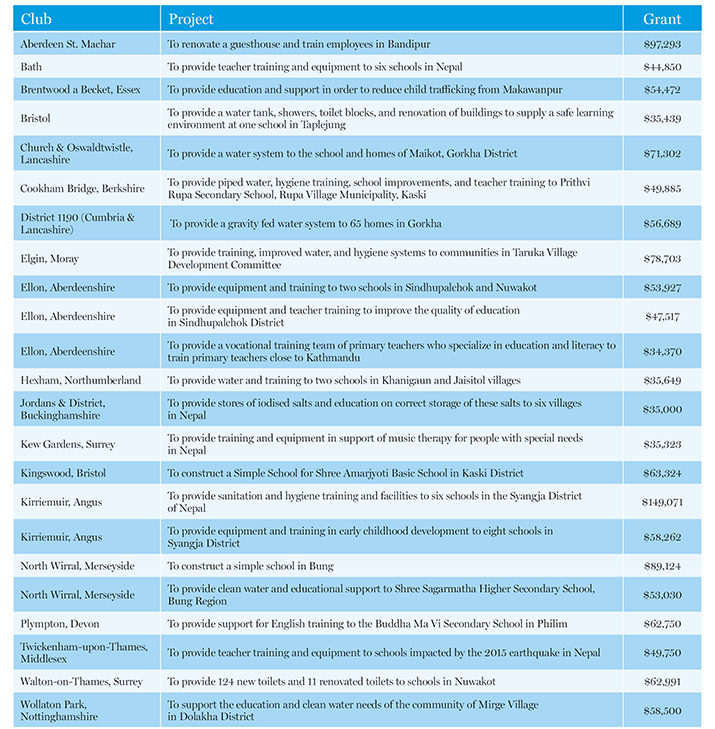

A list of Rotary Global Grants from Rotary clubs in Great Britain and Ireland which helped support the aftermath of the Nepal earthquake, totalling over £1.13 million.
At the time of writing, dozens of women have already been trained in productive economic activities, management, marketing, and expanding their existing links to markets.
The second Global Grant which I want to highlight tries to address a major challenge that many communities are facing since the earthquakes – access to clean drinking water.
After the earthquake many age-old water sources that communities had relied on closed up, moved due to shifts in land, and needed repair. The disruption in water supply has a disproportionate negative effect on women and girls who are traditionally responsible for 75% of all household water management.
In some affected areas, the time taken to fetch water has increased considerably and lack of water has negatively impacted the sanitation and hygiene standards.
So, in response, the Rotary clubs proposed a Global Grant to assist three communities in improving, repairing or restoring their water sources to enhance the ability of community members to engage in economic activities.
After the earthquake many age-old water sources that communities had relied on closed up, moved due to shifts in land, and needed repair.”
Already, they have provided water pipes; constructed proper water tanks; and repaired and strengthened existing water tanks to provide clean and safe water in three sites. They also conducted health and sanitary training in two of the project sites, and continue work to reach all the intended communities.
So, I think it’s clear that our Global Grants can have an immense impact, in this case helping multiple villages in Nepal recover from the devastating earthquakes.
Do you agree with the suggestion that Rotary often operates under the radar at times of major humanitarian crisis, but its impact can be so great?
Our members mobilise quickly not only when a disaster occurs, but also in anticipation of future crises. With our global reach, our members have their ears to the ground. They live in these communities and they can know what their neighbours might need; what the threats are to future stability.
We also have a new mechanism to augment our impact in response to disasters. Districts that have been affected by natural disasters can use Rotary disaster response grants to launch their own projects or work with established relief organisations to help their communities recover.
Grant funds can be used to provide basic items such as water, food, medicine, and clothing.
We know that we are most effective if we work with our expert partners, for example, ShelterBox, our project partner for disaster relief, to deliver emergency shelter and other lifesaving equipment to a family that has lost everything following a disaster.
Rotary members conceived a number of Global Grants which have had a notable impact, from community economic development, to water repair projects, to providing education to vulnerable children.”
Sometimes, because of the delicate nature of humanitarian assistance or unofficial diplomacy, our efforts may not make the front page of the newspapers.
Readers might not know this, but we have also played the role of mediator, for example, in the Balkans or during the Sri Lankan civil war, to negotiate days of tranquillity (in effect humanitarian ceasefires) which allowed health workers to vaccinate vulnerable civilians with life-saving polio drops.
But I can assure you that our impact is not unrecognised, both by our peers and by the communities we serve.
Again last year Charity Navigator, a leading evaluator of charities in the USA, gave The Rotary Foundation its highest rating of four stars for the twelfth consecutive year.
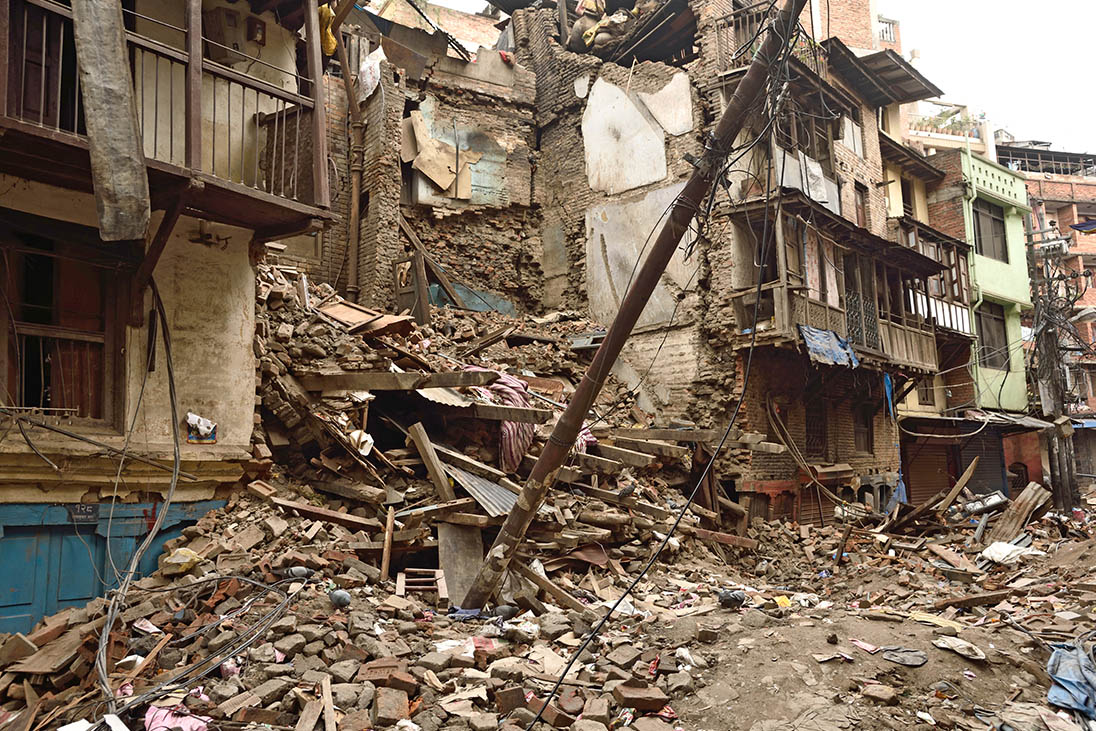

The 7.8 magnitude earthquake killed nearly 9,000 people and injured 22,000 more.
In recent years, CNBC, a leading global media outlet, ranked The Rotary Foundation No. 3 on its list of “Top 10 Charities Changing the World”, and the Association of Fundraising Professionals – the world’s largest network of professional fundraisers – named The Rotary Foundation as the World’s Outstanding Foundation, honouring long-term achievements that have made a significant impact upon society.
How important is The Rotary Foundation to the work and reach of Rotary?
If our members formed the original social network, connecting people for good, then our Foundation is a 100-year-old social impact incubator, changing millions of lives.
The Rotary Foundation is how our dreams of a better world come true.
Thirty years ago, we spearheaded the movement to end polio, and working with our dedicated partners, we have raised $1.9 billion for the cause.
By collaborating with national governments around the world, our initiative is vaccinating 400 million children a year. We now stand closer to ending polio than we ever have before, but we will not rest until polio is eradicated for good.
Through the Foundation’s Global Grants, Rotarians apply their leadership skills and passion for service into projects that are changing lives.
We fight disease, provide clean water and basic sanitation, and support education projects of all types. We mentor local entrepreneurs to grow economies and organise projects that save children at risk of malnutrition. Our training programmes are preparing the next generation of peacemakers.
And I fully believe that our Foundation can be the engine to power even more outstanding humanitarian service well into the future.
For more information visit: www.rotary.org/foundation










